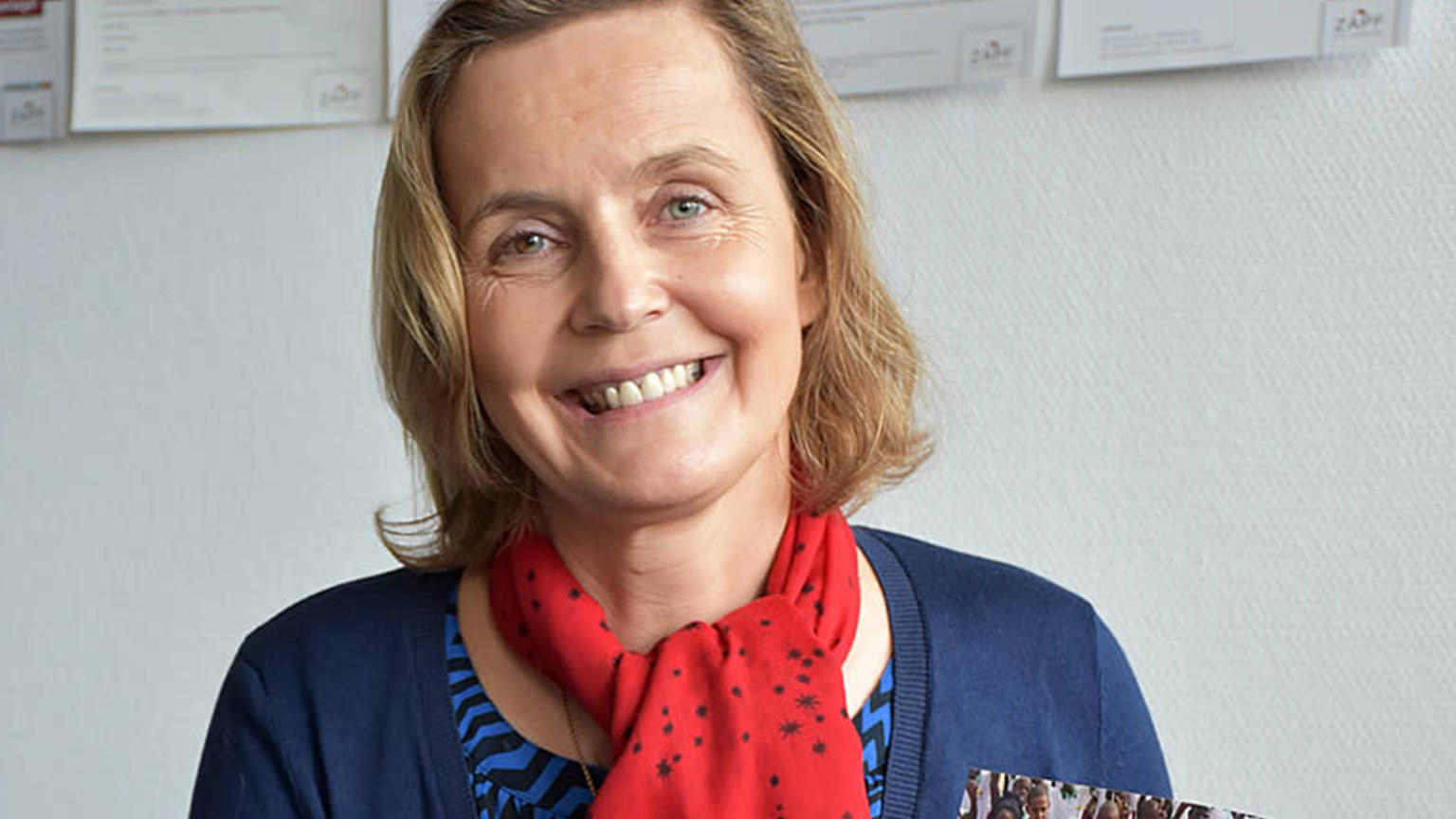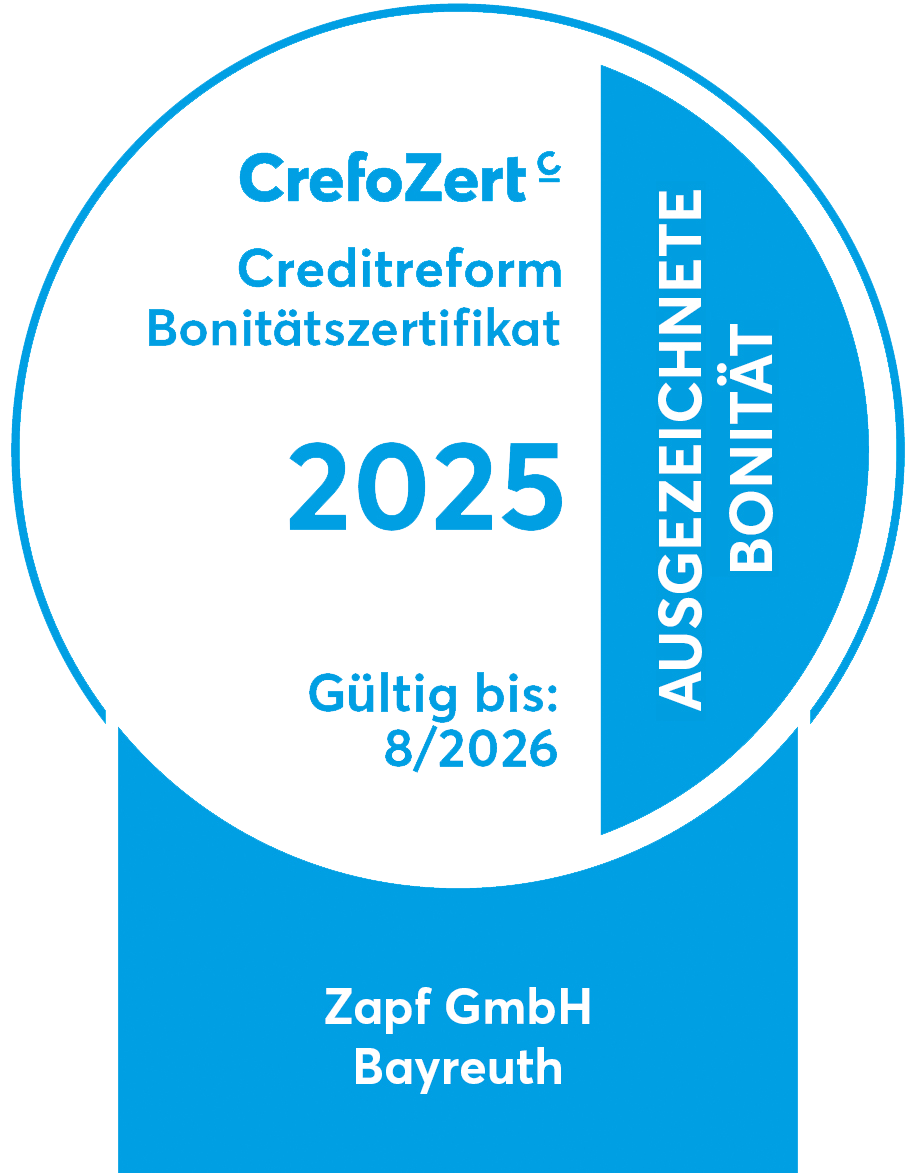
Marie Mitterrand talks about her commitment in West Africa
Marie Mitterrand comes from one of France’s most famous families. Her father, Olivier Mitterrand, is not only the nephew of the late French President François Mitterrand, but also the founder and chairman of the supervisory board of the property development group Les Nouveaux Constructeurs SA (LNC). Marie Mitterrand therefore does not live in any particular luxury. Instead, the mother of four grown-up children is a producer and author of documentary films and also spends much of her free time helping the poorest of the poor: With her foundation Yara LNC, she provides children in Niger in West Africa with an education and prospects for the future. She has now spent a day in Bayreuth as a guest of ZAPF. We took the opportunity to meet her for a chat.
Question: Mrs. Mitterrand, what brings you to Bayreuth?
Marie Mitterrand: Together with my father, I was able to receive a donation for my foundation Yara LNC at the ZAPF GmbH company Christmas party. The employees and partners of ZAPF contributed to this donation. And the “ZAPF Young” trainees were also very involved. I would like to express my sincere thanks for this. ZAPF GmbH has been part of the LNC Group since 2006. That’s why I’ve visited here several times and I’m always delighted by the friendly and warm atmosphere.
Question: Together with your father, you founded Yara LNC in 2006 and you are the president of the foundation. Why are you involved in Africa, more specifically in Niger?
Marie Mitterrand: I know that there are also poor children and young people in France and Europe, and my family and I are also involved here. But there is a big difference to Africa. There, poverty means having no chance and no prospects in life. I used to travel a lot with my father and got to know the living conditions in West Africa. By supporting children in Niger, we are helping the poorest of the poor. The country has around 20 million inhabitants and is ranked 189th out of 189 countries on the United Nations Human Development Index. It consists of 90 percent desert, has the highest fertility rate in the world with more than seven children per woman and the majority of children only go to school for a few years or not at all. Girls and women are particularly hard hit, as they hardly ever receive an education. Instead, in almost 80 percent of cases, they are married off at an age of under 18 and sometimes even under 15. That is why we want to give these children the opportunity to become leaders in their country, helping to change the local situation step by step.
Question: What exactly does the work of your foundation look like?
Marie Mitterrand: We have set up an education program for children and young people, from elementary school through to university. The children and young people in our project mainly come from poor, remote bush villages or from nomadic families and are carefully selected by us. Some of them attend public schools and universities in the capital Niamey and in Zinder, the country’s second largest city. However, we have also established our own education centers with schools and boarding schools in both cities. In 2015, for example, we opened a vocational school with five training courses and in 2016 an elementary school, each with boarding facilities, in Zinder. At the beginning of this year, we inaugurated another practice-oriented education center in Zinder. And we are currently building a new boarding school in Niamey.
Question: Are there any successes that you are particularly proud of?
Marie Mitterrand: Yes, actually there are 284 successes, because that is how many children and young people we have been able to include in our project so far. Of these, 186 are currently in grades 3 to 12. One of them has even been accepted to the “High School of Excellence”, a grammar school for the best in the country. 17 young adults can go to university or college with our help. 98 young adults are undergoing vocational training to learn a trade. And 15 young adults have already successfully started their careers and are working as teachers, designers, veterinary assistants or have even opened their own small restaurant. It’s just great to see the children develop and watch them become strong personalities. We also notice that the girls later get married and have children.
Question: How often are you on site yourself?
Marie Mitterrand: On average, I’m on site around three times a year. It’s important for me to be very involved. I know our entire team and of course every child in our project and know how they are doing. I am also always up to date on the financial situation and keep in touch with partner institutions and companies. This year will be my fifth trip, as I want to find out about the progress of our construction projects. It is also important for me to emphasize that every euro goes into the project and that we don’t spend any money on administration and organization in France; I also pay my own travel expenses.
Question: What did you take away and / or learn from your work on site?
Marie Mitterrand: I keep realizing how close we are and how alike we humans are. Even if the circumstances and living environments are completely different, the teenagers in Niger are basically no different to the teenagers here in France. They have the same desires, goals and emotions. Good grades, friendships, love, recognition and, of course, smartphones play a major role for them too.
Question: What do you wish for the future of Yara LNC?
I hope that the project will gradually become self-sustaining and that I will be able to retire at some point. That is why we are also working on generating sources of income locally, for example by now including children from wealthy families in our project who pay for their education and thus cover the costs for children from poor families. And of course I hope that, until that time comes, there will continue to be people, like the ZAPF employees, who recognize the value of our work and support us.







